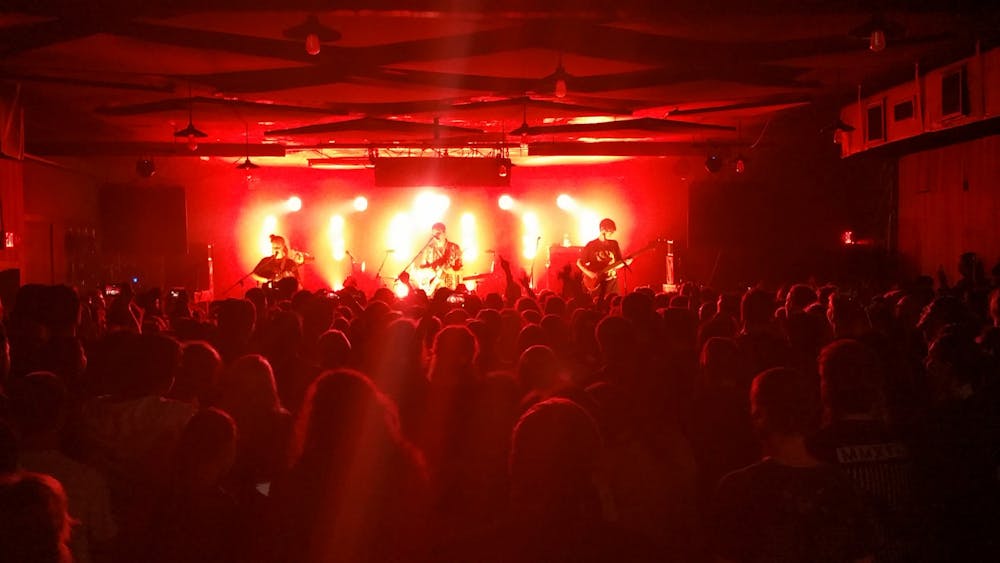After months of just getting by, independent venues are getting relief.
The Save Our Stages Act, a $15 billion funding package meant specifically for independent venues, was signed by President Donald Trump on Dec. 27 as part of a $900 billion COVID-19 stimulus bill. The act was drafted after months of lobbying from the National Independent Venue Association, a coalition of more than 1,200 live music venues across the country — including Gainesville’s High Dive — that pushed for government assistance through the pandemic.
The act allocates individual grants equal to 45% of each independent venues’ gross revenue from 2019, with a cap at $10 million to each establishment. Allowable expenses under the act include any costs of operating from March 1, 2020 to Dec. 31, 2021. According to a statement from NIVA, the funding will aid in payroll and benefits for venue employees, rent and mortgage, utilities, insurance and other business expenses.
For venues like High Dive, this kind of government assistance is the difference between surviving and shutting down for good. With little-to-no previous aid and more than six months of complete closure, Pat Lavery, facility and events manager of High Dive, struggled to keep the business afloat.
“We are relieved to know that help is finally on the way,” he said.
Despite earlier assistance like the Paycheck Protection Program, funds from the act represent the first significant COVID-19 relief to independent venues. The PPP loans issued to small businesses from the federal government in June did little to alleviate the economic pitfalls High Dive faced in the hiatus, Lavery said.
“That was meant to last two-and-a-half months, but it really only lasted about a month for us,” he said.
Save Our Stages funds will be distributed as grants, whereas PPP funds were loaned to businesses. The funding will help venues not only continue to operate but also pay off loans that were dispensed as additional aid early in the closures.
In terms of aid, no one venue has fared exactly the same. High Dive received only the PPP loan and “a little bit” from Alachua County’s Coronavirus Aid, Relief, and Economic Security Act, Lavery said. Other establishments, like Ybor City’s Crowbar, received additional aid from both the federal and local governments.
Tom DeGeorge, Crowbar owner and captain of the Florida precinct of NIVA, took a $150,000 Economic Injury Disaster Loan from the federal government to keep his venue alive. The loan, created by the U.S. Small Business Administration specifically for relief from the economic fallout of the COVID-19 pandemic, sustained Crowbar in the short term.
But with a lengthy 30-year maturity period and Crowbar still months away from business as usual, DeGeorge fears the loan will be impossible to pay back for his venue and others like it.
“If we’re left with those loans, our businesses will not survive,” he said.
The importance of the Save Our Stages Act comes from its specificity to live music venues. Unlike other small businesses, venues will not be able to immediately reopen at full capacity once the pandemic ends. Instead, they will need to wait until every part of the touring economy — artists and patrons as well as the venues themselves — is back in place to continue normal operations.
A return to normalcy is expected in the fall of 2021, Lavery said. The act will function as a cushion until then, covering some of the costs of being open while High Dive continues to host livestreams and distanced, limited-capacity shows.
Funds from the act will allow venues to continue to operate at reduced capacity and reopen safely, helping to make up for the profits lost both during the closure period and with current limited operations. For venue owners, it means catching up on bills and maintaining the upkeep of the facility. For employees, it means staying on the payroll during the coming months.
“That’s the thing that’s really going to save our industry,” Lavery said.

Heather Bushman is a fourth-year journalism and political science student and the enterprise elections reporter. She previously wrote and edited for the Avenue desk and reported for WUFT News. You can usually find her writing, listening to music or writing about listening to music. Ask her about synesthesia or her album tier list sometime.






